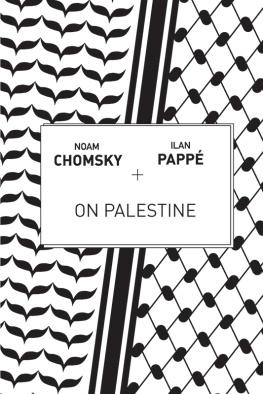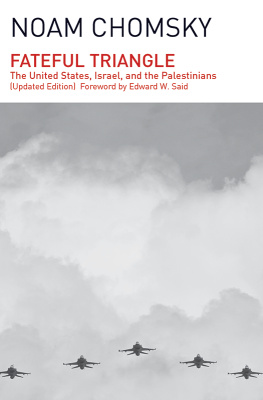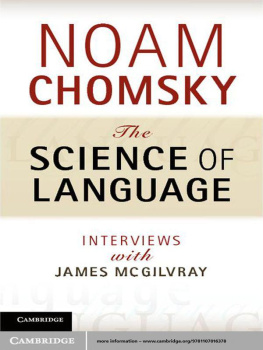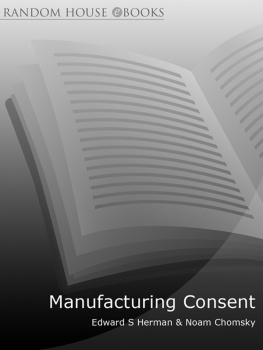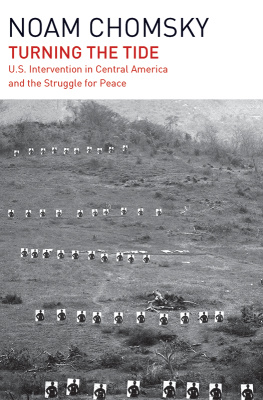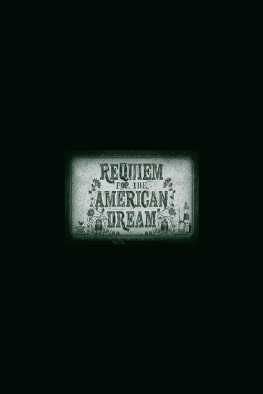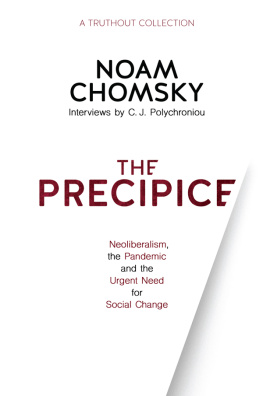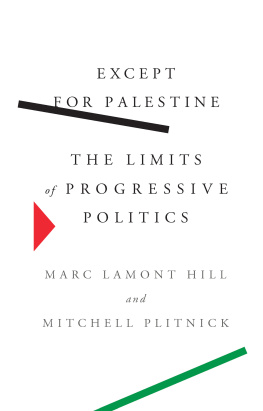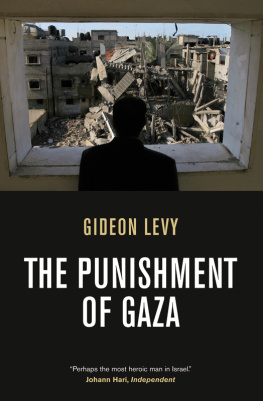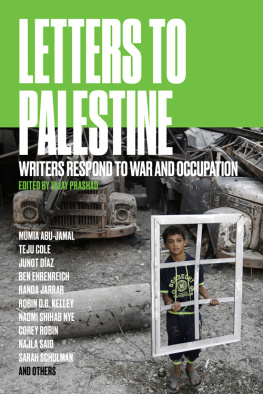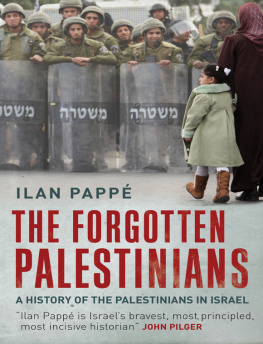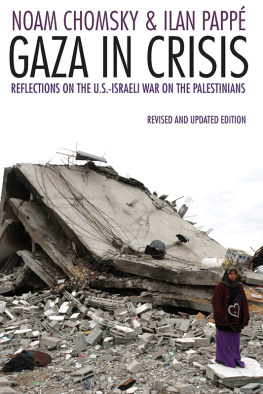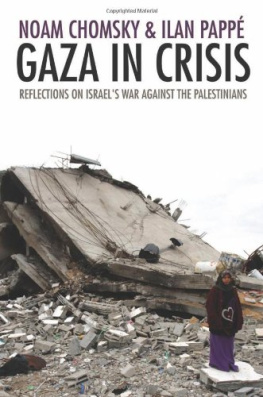Noam Chomsky - On Palestine
Here you can read online Noam Chomsky - On Palestine full text of the book (entire story) in english for free. Download pdf and epub, get meaning, cover and reviews about this ebook. year: 2015, publisher: Haymarket Books, genre: Politics. Description of the work, (preface) as well as reviews are available. Best literature library LitArk.com created for fans of good reading and offers a wide selection of genres:
Romance novel
Science fiction
Adventure
Detective
Science
History
Home and family
Prose
Art
Politics
Computer
Non-fiction
Religion
Business
Children
Humor
Choose a favorite category and find really read worthwhile books. Enjoy immersion in the world of imagination, feel the emotions of the characters or learn something new for yourself, make an fascinating discovery.
- Book:On Palestine
- Author:
- Publisher:Haymarket Books
- Genre:
- Year:2015
- Rating:5 / 5
- Favourites:Add to favourites
- Your mark:
- 100
- 1
- 2
- 3
- 4
- 5
On Palestine: summary, description and annotation
We offer to read an annotation, description, summary or preface (depends on what the author of the book "On Palestine" wrote himself). If you haven't found the necessary information about the book — write in the comments, we will try to find it.
Operation Protective Edge, Israels most recent assault on Gaza, left thousands of Palestinians dead and cleared the way for another Israeli land grab. The need to stand in solidarity with Palestinians has never been greater. Ilan Papp and Noam Chomsky, two leading voices in the struggle to liberate Palestine, discuss the road ahead for Palestinians and how the international community can pressure Israel to end its human rights abuses against the people of Palestine. On Palestine is the sequel to their acclaimed book Gaza in Crisis.
On Palestine — read online for free the complete book (whole text) full work
Below is the text of the book, divided by pages. System saving the place of the last page read, allows you to conveniently read the book "On Palestine" online for free, without having to search again every time where you left off. Put a bookmark, and you can go to the page where you finished reading at any time.
Font size:
Interval:
Bookmark:
Contents
Chapter One
The Old and New Conversations
Ilan Papp
When Frank Barat and I sat with Noam Chomsky for a long discussion about Palestine we divided our conversation into three parts: a discussion on the past, focusing on understanding Zionism as a historical phenomenon; a conversation about the present, with a particular focus on the validity and desirability of applying the apartheid model to Israel and on the efficacy of the BDS movement as a major strategy of solidarity with the Palestinian people; and finally, in talking about the future, we discussed the choice between a two-state and a one-state solution.
The principal purpose of these meetings was to help us all clarify our views in light of the dramatic changes not only in Israel and Palestine in recent years but in the region as a whole. We assumed that many readers would agree with us that Chomskys take on Palestine, at the present historical juncture, is a crucial contribution for any relevant discussion on the issue. We hope that this conversation helps to clarify the Palestine issue, specifically highlighting the possible transition that is taking place in the solidarity movement with the Palestinians, with wide implications for the struggle from within Israel/Palestine. We do not cover all the issues; we selected those that seemed controversial, and strove for the exchange to be a civilized one (apart from one or two less-tame outbursts) for a movement that needs to be united. The fragmentation of the liberation movement itself, its apparent lack of clear leadership, and the ambiguity that characterizes the Israeli peace camp all contribute to this dissension. Nonetheless, a dialogue among those who believe in peace must be possible!
We seem to be in the midst of a transition from an old conversation about Palestine to a new one. I myself feel very comfortable in the new conversation but would not like to lose the comrades who are still happier in the older one. So here, in the first part of this book, I aim to delineate the two conversations before engaging in a conversation with Noam on the issues that are at the heart of the matter.
The Old Peace Orthodoxy and Its Challengers
The need to look for a new conversation about Palestine stems first and foremost from the dramatic changes on the ground in recent years. These developments are likely familiar to most of our readers, and I will summarize them in the most updated form possible toward the end of this essay and assess their impact on the future conversation.
But I think the search for new ideas, and maybe even for a new language, about Palestine emerged out of a longer-term crisis. The crisis was characterized by the inability to translate impressive gains outside of Palestine, especially in transforming world public opinion about it, into tangible changes on the ground. The new search is an attempt to deal with several gaps and paradoxes that haunt the solidarity movement with Palestine as a result of this obstacle.
These days the ever-growing camp of activists for peace and justice in Palestine is facing several paradoxes that are hard to reconcile. Let me first consider these paradoxes and then suggest a way forward both through my own analysis, the analyses of others, and finally through a conversation with Chomsky.
The first paradox is the gap between the dramatic change in world public opinion on the issue of Palestine on the one hand, and the continued support from the political and economic elites in the West for the Jewish state on the other (and hence the lack of any impact of that change on the reality on the ground).
Activists for the cause of Palestine sense rightly that their message of justice and their basic understanding of the grave situation in Israel and Palestine are now widely accepted in the world, but yet this has not alleviated the Palestinians sufferings wherever they are.
While in the past, the activists could have attributed this gap to a measure of sophistication behind the Israeli actions that hid well the uncanny, and quite often criminal, Israeli policies, this could not have been the case in our century. The successive Israeli governments since the beginning of this century rendered any sophisticated analysis of Israel quite redundant. These days, it is very easy to expose not only the Israeli policy but also the racist ideology behind it. The activists efforts and this deplorable policy produced a dramatic shift in Western, including American, public opinion; but so far this shift has failed to reach the upper echelons of society and therefore on the ground Israel continuesunabated and uninterruptedits policies of dispossession and does not seem to be paying a price for its policies.
The second gap, indeed paradox, is the one between this widely held negative image of Israel on the one hand, and the very positive image its own Jewish society has of the state. Israels relative economic prosperity still promises that the most isolated state in the Organisation for Economic Co-operation and Development is regarded by its own Jewish citizens as a thriving state that has ended the Arab-Israeli conflict and has only to struggle with residues of the Western war against terrorism in the form of Hamas and Hezbollah (but even that is not deemed a crucial issue in the wake of the Arab Spring). Israel does suffer from social and cultural rifts and cracks, but they have been muted for the time being by the invention of a phony threat of an Iranian nuclear war and other such scenarios that also ensure the uninhibited flow of money to the army and security services.
This sense of success of course is not shared by the Palestinian citizens of Israel in the Galilee and the al-Naqab (the Negev) who continue to suffer from expropriation of their land and demolition of their houses and are exposed to a new set of racist laws that undermine their most essential and elementary rights. The Palestinians in the West Bank are still humiliated on a daily basis at checkpoints; arrested without trial, losing their lands to settlers and the Israeli Land Authority; and barred from traveling to nearby villages and towns due to the systems of apartheid walls and barriers that encircle their homes. Those who try pay with their lives or are arrested. And the people of Gaza are still subjected to the barbaric combination of siege and bombardment and shooting in the biggest open human jail upon earth. And of course one should not forget that millions of Palestinian refugees still languish in camps while their right of return seems to be totally ignored by the global powers that be.
The third paradox is that while specific Israeli policies are severely criticized and condemned, the very nature of the Israeli regime and the ideology that produces these policies are not targeted by the solidarity movement. Activists and supporters demonstrated against the massacre in Gaza in 2009 and the assault on the flotilla in 2010, yet in this arena of open and public protest nobody, it seems, dares to attack the ideology that is behind these aggressions. There is no demonstration against Zionism, because even the European Parliament regards such a demonstration as anti-Semitic. Imagine, in the days of supremacist South Africa, if you were not allowed to demonstrate against the apartheid regime itself, but only against the Soweto massacre or any other particular atrocity committed by the South African government.
The last paradox is that the tale of Palestine from the beginning until today is a simple story of colonialism and dispossession, yet the world treats it as a multifaceted and complex storyhard to understand and even harder to solve. Indeed, the story of Palestine has been told before: European settlers coming to a foreign land, settling there, and either committing genocide against or expelling the indigenous people. The Zionists have not invented anything new in this respect. But Israel succeeded nonetheless, with the help of its allies everywhere, in building a multilayered explanation that is so complex that only Israel can understand it. Any interference from the outside world is immediately castigated as nave at best or anti-Semitic at worst.
Next pageFont size:
Interval:
Bookmark:
Similar books «On Palestine»
Look at similar books to On Palestine. We have selected literature similar in name and meaning in the hope of providing readers with more options to find new, interesting, not yet read works.
Discussion, reviews of the book On Palestine and just readers' own opinions. Leave your comments, write what you think about the work, its meaning or the main characters. Specify what exactly you liked and what you didn't like, and why you think so.

